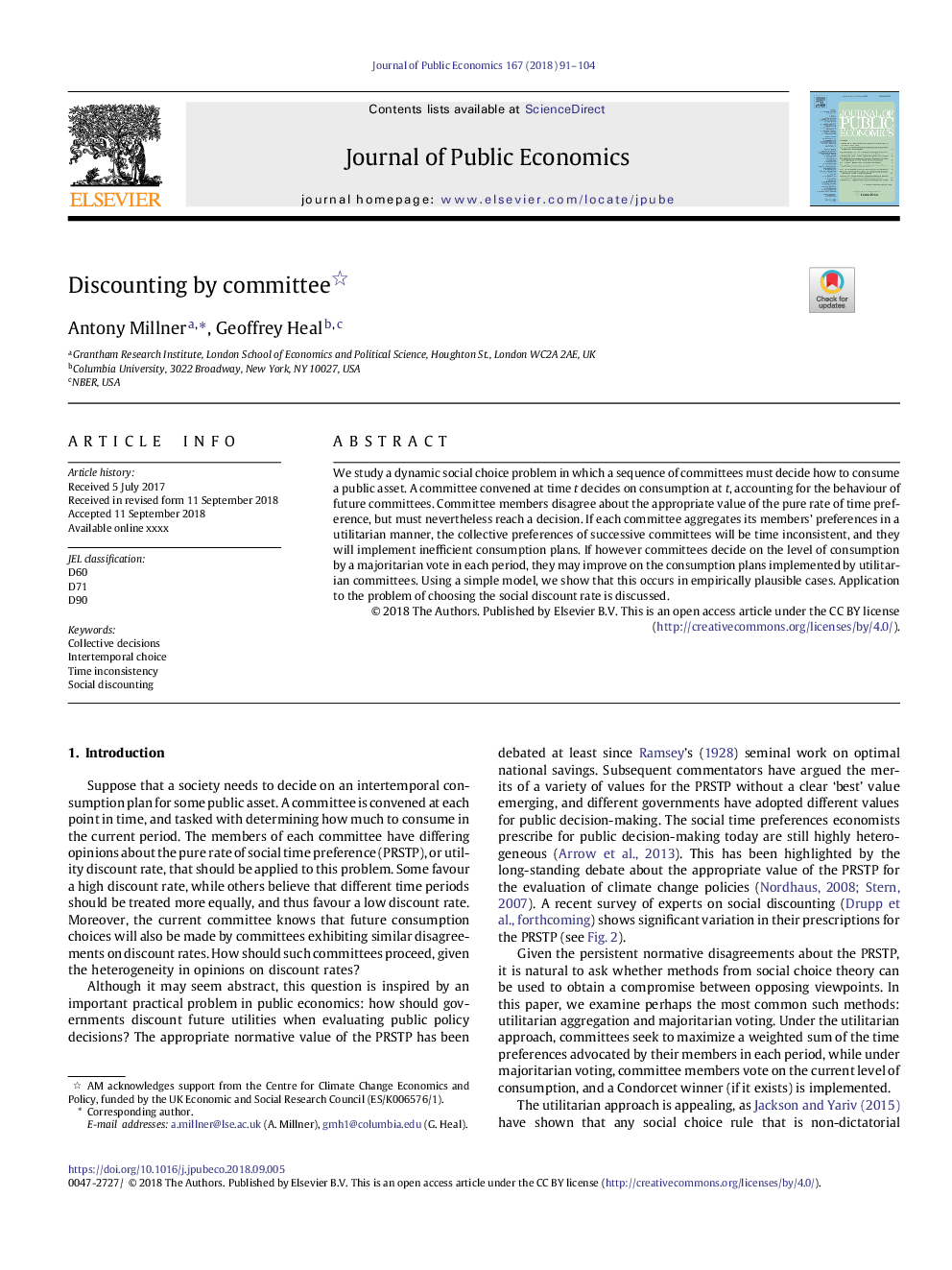| Article ID | Journal | Published Year | Pages | File Type |
|---|---|---|---|---|
| 11027595 | Journal of Public Economics | 2018 | 14 Pages |
Abstract
We study a dynamic social choice problem in which a sequence of committees must decide how to consume a public asset. A committee convened at time t decides on consumption at t, accounting for the behaviour of future committees. Committee members disagree about the appropriate value of the pure rate of time preference, but must nevertheless reach a decision. If each committee aggregates its members' preferences in a utilitarian manner, the collective preferences of successive committees will be time inconsistent, and they will implement inefficient consumption plans. If however committees decide on the level of consumption by a majoritarian vote in each period, they may improve on the consumption plans implemented by utilitarian committees. Using a simple model, we show that this occurs in empirically plausible cases. Application to the problem of choosing the social discount rate is discussed.
Related Topics
Social Sciences and Humanities
Economics, Econometrics and Finance
Economics and Econometrics
Authors
Antony Millner, Geoffrey Heal,
